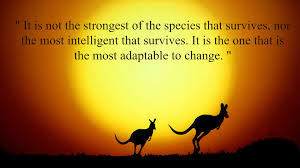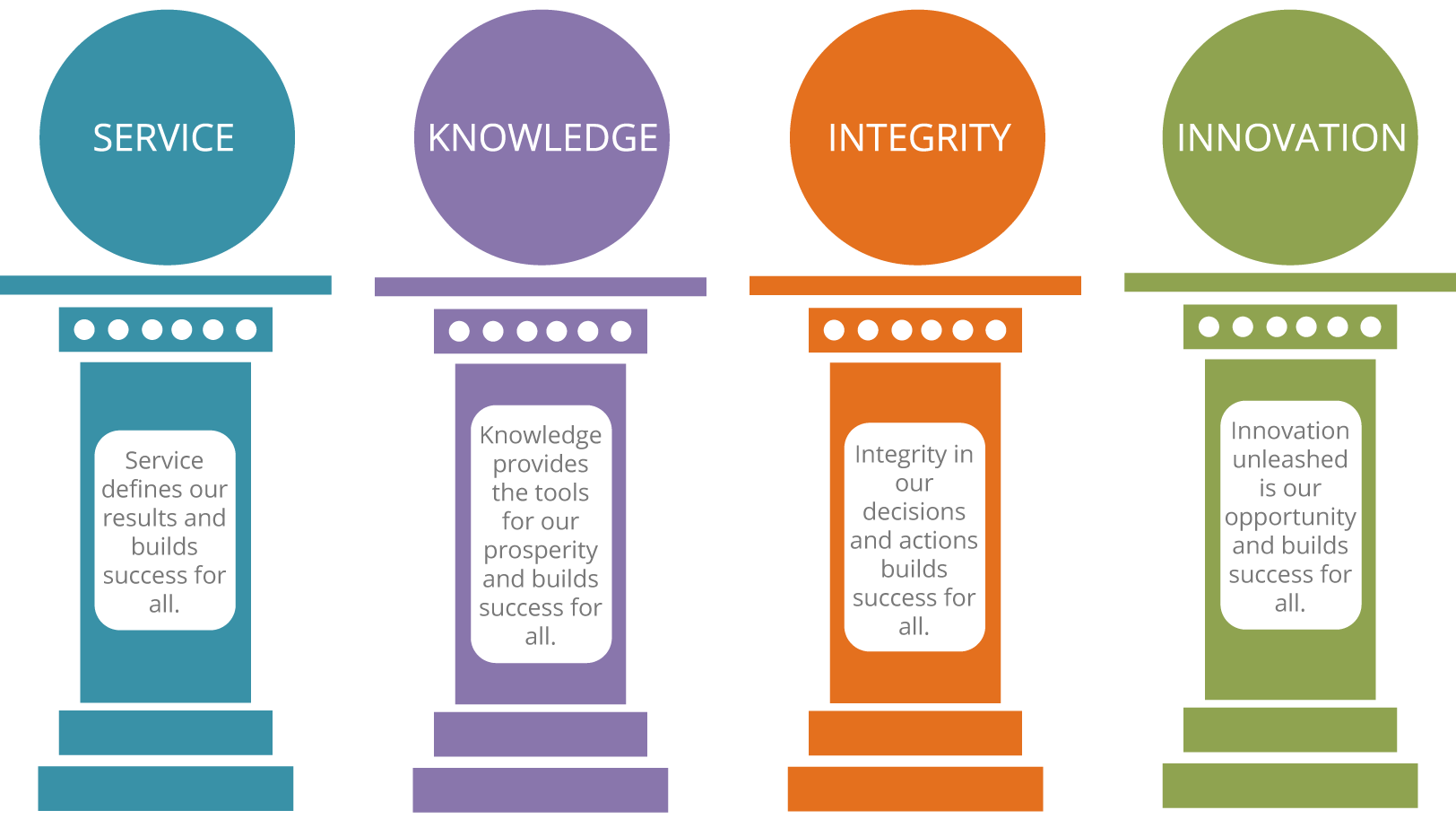Word-Of-the-Week #695: Reciprocity
November 30, 2017 by Susan Clarke · Comments Off on Word-Of-the-Week #695: Reciprocity
Reciprocity – what you receive as a result of what you give or do.
What goes around comes around! What you give out it is what you will get back. What message are you sending to the universe? One of giving or taking?
This is the second half of “Why gratitude is so good” by Arlene Dawson.
The importance of gratitude goes beyond a picture-perfect Thanksgiving tableau. Many experts believe that feeling grateful is also beneficial to your health.
“Gratitude is good medicine,” says Robert A. Emmons, professor of psychology at UC Davis and founding editor in chief of the Journal of Positive Psychology. Studies show that practicing gratitude can be used to help lower blood pressure, stop smoking and reduce stress.
Here are her last 5 reasons why it’s beneficial to cultivate an attitude of gratitude year round, not just at Thanksgiving:
- Fosters a sense of community – “The thread of life can unravel very quickly, so we need memories of how we’ve been supported and sustained by other
 people,” Emmons says. For instance, if a hospital took good care of your spouse, you may be motivated to donate money to help build a new cancer wing. “So much of life is about giving, receiving, repaying benefits; that’s why gratitude is so foundational and fundamental to human beings and to social life. … It’s a cycle of reciprocity.”
people,” Emmons says. For instance, if a hospital took good care of your spouse, you may be motivated to donate money to help build a new cancer wing. “So much of life is about giving, receiving, repaying benefits; that’s why gratitude is so foundational and fundamental to human beings and to social life. … It’s a cycle of reciprocity.”
- Helps fend off depression – Practicing gratitude is linked to more resilience and optimism, Emmons says, recalling one study that found that counting blessings and “gratitude letter writing” reduced the risk of depression in patients by 41% over six months.
- Makes you a better spouse – Rather than focusing on “negative attributions” or what you don’t like about your mate, “Focus on what your partner is good at,” Emmons says. With any luck, that praise and affirmation might inspire him or her to improve other aspects of the relationship.
- Makes you a better boss and manager – Managers who express gratitude have more productive employees. In turn, “Grateful employees are better employees. They’re more engaged … more efficient,” Emmons says.
- Increases life satisfaction for kids – “The way you couch it to kids is: Be on the hunt for the good,” Froh says. “Kids who are grateful have better relationships growing up, increased happiness and life satisfaction, more emotional and social support, get higher grades, do better in school, are less envious and less materialistic.”
This week is all about the law of reciprocity. Who is the most supportive person in your life? Have you repaid the benefit of that? How often are you “on the hunt for the good?” Because the more you do that, the more “good things” will happen!
I LOVE feedback! Join my Facebook community on my FUN-damentals Fan Page.
Here are a few resources to help you get started on your gratitude journey:
—Gratefulness.org, which was co-founded by Catholic Benedictine monk David Steindl-Rast, now 91
–The popular TED talk “Want to be happy? Be grateful,” also by Steindl-Rast
–The Ted.com gratitude playlist
—The Greater Good Science Center at UC Berkeley and its Greater Good magazine
–“Thanks! How the New Science of Gratitude Can Make You Happier” by Robert A. Emmons, professor of psychology at UC Davis
Word-Of-the-Week #694: Gratitude
November 23, 2017 by Susan Clarke · Comments Off on Word-Of-the-Week #694: Gratitude
Gratitude – a feeling of thankfulness or appreciation.
Today is Thanksgiving and I believe you can never be too thankful! Many of you have a long weekend off of work (and so to not overwhelm you) I am splitting up “Why gratitude is so good” by Arlene Dawson.
The importance of gratitude goes beyond a picture-perfect Thanksgiving tableau. Many experts believe that feeling grateful is also beneficial to your health.
“Gratitude is good medicine,” says Robert A. Emmons, professor of psychology at UC Davis and founding editor in chief of the Journal of Positive Psychology. Studies show that practicing gratitude can be used to help lower blood pressure, stop smoking and reduce stress.
Here are her first 5 reasons why it’s beneficial to cultivate an attitude of gratitude year round, not just at Thanksgiving:
- Gratitude empowers you – “If we’re so depressed about what’s going on in the world that we can’t act, what does that serve? So part of what we’re trying to do is keep people connected to gratefulness as a source of activism,” says Kristi Nelson, executive director of gratefulness.org, which describes itself as an online sanctuary dedicated to fostering grateful living. “It’s really powerful to steep ourselves in what we’re grateful for and then act to defend, protect and advance that in the world.”
- Helps fight addiction – “There’s a lot of belief that addictions come out of spiritual thirst,” says Nelson, citing a principle of 12-step programs. Gratitude can help you positively reframe not just the present but the past and future. “We have seen people have tremendous breakthroughs in valuing their lives and each other and life itself as a result of focusing on what they have to feel grateful for versus what’s missing in their lives.”

- Combats the Facebook blues – “In a consumer culture, we’re driven to see what we don’t have, and Facebook, social media, is only making it worse,” Nelson says. “It can feel like we’re all living in some kind of substandard world, that something should be different. That’s a form of suffering as opposed to seeing [that life itself is] a gift.”
- Boosts self-control – “Gratitude makes people more patient,” says Jeffrey Froh, an associate professor at Hofstra University, referencing the ability to delay gratification. “Future rewards are generally less attractive, but if you’re in a grateful mood you’re more able to wait. If you’re sad or depressed you just want to feel better in the moment, so you eat that whole cheesecake” instead of skipping dessert in favor of your weight-loss goals.
- Helps you sleep better – Instead of counting sheep, try counting your blessings. “There are about six good studies now showing that gratitude facilitates better sleep,” Emmons says. Almost every benchmark of good sleep — including duration of sleep and the time it takes to fall asleep — is improved by gratitude.
There are so many reasons why we should all be thankful. This week is all about really being aware and acknowledging that. My message to you is, “I hope you truly appreciate how fortunate you are and that you have a wonderful week giving THANKS!”
I LOVE feedback! Join my Facebook community on my FUN-damentals Fan Page.
Word-Of-the-Week #693: Culture
November 16, 2017 by Susan Clarke · Comments Off on Word-Of-the-Week #693: Culture
Culture – the values, practices, and beliefs shared by the members of a group.
Do you work in a positive environment? Do you feel valued and appreciated? Are you inspired and motivated every day?
This week features Doug Claffey and “5 keys to a better workplace.”
“What distinguishes a Top Workplace from an average one? The truth is, there’s no single practice, no one-size-fits-all solution for achieving great results. But there are common qualities of success you should be able to identify in every company.
We know from our decade of research it’s not perks or “coolness” that makes the difference. The best employers carefully craft a positive workplace culture. We also know that organizations who make the “Top Workplace” list share a common foundation that supports a healthy culture — and employee engagement. Here are five key lessons:
- People really are the greatest asset: It goes beyond lip service. It’s a core principle that’s brought to life every day, with leadership putting employees at the center of their thinking. Done right, the feeling is returned: Employees consistently tell us that a sense of appreciation and confidence in leadership are among the most important factors for their workplace satisfaction.
- Leaders listen: The best leaders listen to the feedback provided by employees both formally and informally. While some leaders might dwell on the inherent risks of giving employees a voice, leaders at Top Workplaces are clued in to their team’s challenges and use this knowledge in decision-making. This builds a sense of commitment and accountability.
- Everyone is in the loop: It’s difficult to be fully committed if you’re kept in the dark. Employees want to be well-informed. Leaders in Top Workplaces recognize this. They’re committed to sharing information as much — and as often — as they can. And they don’t just share the happy news. Organizations that fail to communicate with staff on a regular basis, substantively, will leave an information void. That gap will be filled quickly with rumors and speculation.
- Live with a purpose: Employees want to feel their work contributes to something meaningful. Effective leaders deliver an inspiring vision, which the entire team connects with day to day. In 2016, among the top 10 percent of companies we surveyed nationwide, 96 percent of employees reported feeling motivated. Compare that to the bottom 10 percent of organizations (which most closely represent a “typical” workforce), where just 62 percent of employees felt motivated. This 34 percentage-point gap represents a massive drop in productivity. Motivation matters.
- Build community: Neuroscience teaches us the importance people place on feeling accepted and safe in their “tribe.” It helps them stay focused and contributes to success. In forging productive employee experiences, Top Workplaces care about building community. They hold regular, purposeful events that foster a sense of belonging. That sense of appreciation also keeps employees connected. We see it in the Energage survey comments, like this one from an employee at The Control Group Media Company, Inc.: “We have great teamwork and collaboration, and we help each other be successful.”
The best workplaces always look to improve. After all, it’s a journey, not a destination. Even top-ranked companies will find things to work on in a process of continuous improvement. If done right, employees will know their workplace is special. Employers shouldn’t be shy asking for extra effort in return. Ensure staff remains active in the ongoing success of the organization — with all the necessary accountability. And remember to celebrate along the way”.
Doug Claffey is the chief executive officer of Energage, formerly WorkplaceDynamics.
Culture is the personality of a company. It defines the environment in which employees work. That being said, do you feel you are an asset? Are you kept well-informed? Does management listen? Are you part of a team that helps everyone to be successful?
I LOVE feedback! Join my Facebook community on my FUN-damentals Fan Page.
Word-Of-the-Week #692: Adaptable
November 9, 2017 by Susan Clarke · Comments Off on Word-Of-the-Week #692: Adaptable
Adaptable – able to adjust readily to different conditions.
How often and how fast do you see company changes? Do you respond to new circumstances and challenges with excitement or hesitation? How flexible are you when it comes to implementing changes?
This is the last part of the Baltimore Sun article by Jeff Haden Inc. Magazine “Path to Promotion: What one co-founder looks for when promoting employees” is our feature. He writes:
One of the most common questions that ambitious employees ask their boss — along with “Can I get a raise?” — is “What can I do to get promoted?”
- Be self-aware, not selfish.
Self-aware people understand themselves and that helps them understand the people around them. They are more empathetic and accepting of the weaknesses of others because they know how it feels to fail.
They can lead with compassion and kindness because they know how it feels to be treated with disregard, disdain and scorn. They do everything they can to help others reach their goals, because they know how it feels to fall short.
Self-aware people solve for the team, the organization and the customer — not just for themselves. Every organization needs self-aware people in key roles. (What is a key role? Every role.)
- Be adaptable, not rigid.
Things constantly change in high-growth companies. Inflexible people grow uncomfortable with too much change and consciously or unconsciously try to slow things down.
Best practices are important. Methodology is important. Guidelines, procedures and policies all can help a business run smoothly.
But anyone can follow guidelines and procedures. Great employees are willing, even eager, to change. Great employees respond to new circumstances and challenges with excitement, not hesitation. Employees willing to adapt tend to advance more quickly because that is what every company needs.
- Be a teacher, not a truant officer.
The best people like to teach. They don’t hoard knowledge; they spread it and share what they know.
A truant officer’s job is to make sure people show up. A teacher’s job is to make sure people learn. A teacher helps other people gain experience, wisdom and insight. A teacher willingly and happily gives other people tools they can use.
In the process, a teacher builds teams. And a teacher advances, because a true team builder is a rare gem.
This week’s focus is on being adaptable. How good are you in supporting your co-workers during times of change? How would you rate yourself on compassion and kindness for others? How willing are you to share information and be of help to the team?
I LOVE feedback! Join my Facebook community on my FUN-damentals Fan Page.
Word-Of-the-Week #691: Long-term
November 2, 2017 by Susan Clarke · Comments Off on Word-Of-the-Week #691: Long-term
Long-term – seeing the big picture in the long run.
Do the managers and supervisors you work for inspire you? Do you follow their requests because you want to or because you have to? Are you in a position where you truly have influence over the success of the company?
This is Part 2 of the Baltimore Sun article by Jeff Haden Inc. Magazine “Path to Promotion: What one co-founder looks for when promoting employees” is our feature. He writes:
One of the most common questions that ambitious employees ask their boss — along with “Can I get a raise?” — is “What can I do to get promoted?”
- Focus on execution.
Planning is important, but too many shelves are filled with strategies that were never implemented.
The best employees develop an idea, create a strategy, set up a basic operational plan, then execute, adapt, execute, revise, execute, refine and make great things happen based on what works in practice, not in theory.
Success starts with strategy but ends with execution. Employees who advance are certainly good at planning, but they are awesome at execution.
- Think long-term.
Real leadership isn’t short-lived. Real leaders are able to consistently inspire, motivate and make people feel better about themselves than they think they have a right to feel. Real leaders are people you follow not because you have to, but because you want to.
right to feel. Real leaders are people you follow not because you have to, but because you want to.
Other people will follow a real leader anywhere. And they’ll follow a real leader forever because she has a knack for making you feel you aren’t actually following — wherever you’re going, you feel like you’re going there together.
Creating that level of respect and trust and that type of bond takes time. Great employees consider not just the short-term but also the long-term, and then act accordingly.
In time, great employees are placed in positions where they can truly influence the success of their company.
- Be a volunteer, not a draftee.
The best employees are natural volunteers. They volunteer for extra tasks. They volunteer for responsibility before responsibility is delegated. They volunteer to train or mentor new employees. They offer to help people who need help, and even those who don’t.
Why is that important? Volunteering demonstrates leadership aptitude. Leaders are proactive, and proactive people don’t wait to be told what to do.
Successful employees earn promotions by working harder, just as successful businesses earn higher revenue by delivering greater value, and successful entrepreneurs earn bigger payoffs by working hard well before any potential return is in sight.
Draftees expect to be asked. Draftees expect to be compensated before they will even consider doing more.
This week’s focus is on the long-term. How good are you at planning & execution? Do you have the respect and trust of your management team? How often do you volunteer to take on projects or help your co-workers? Where do you see yourself in the big picture?
I LOVE feedback! Join my Facebook community on my FUN-damentals Fan Page.


